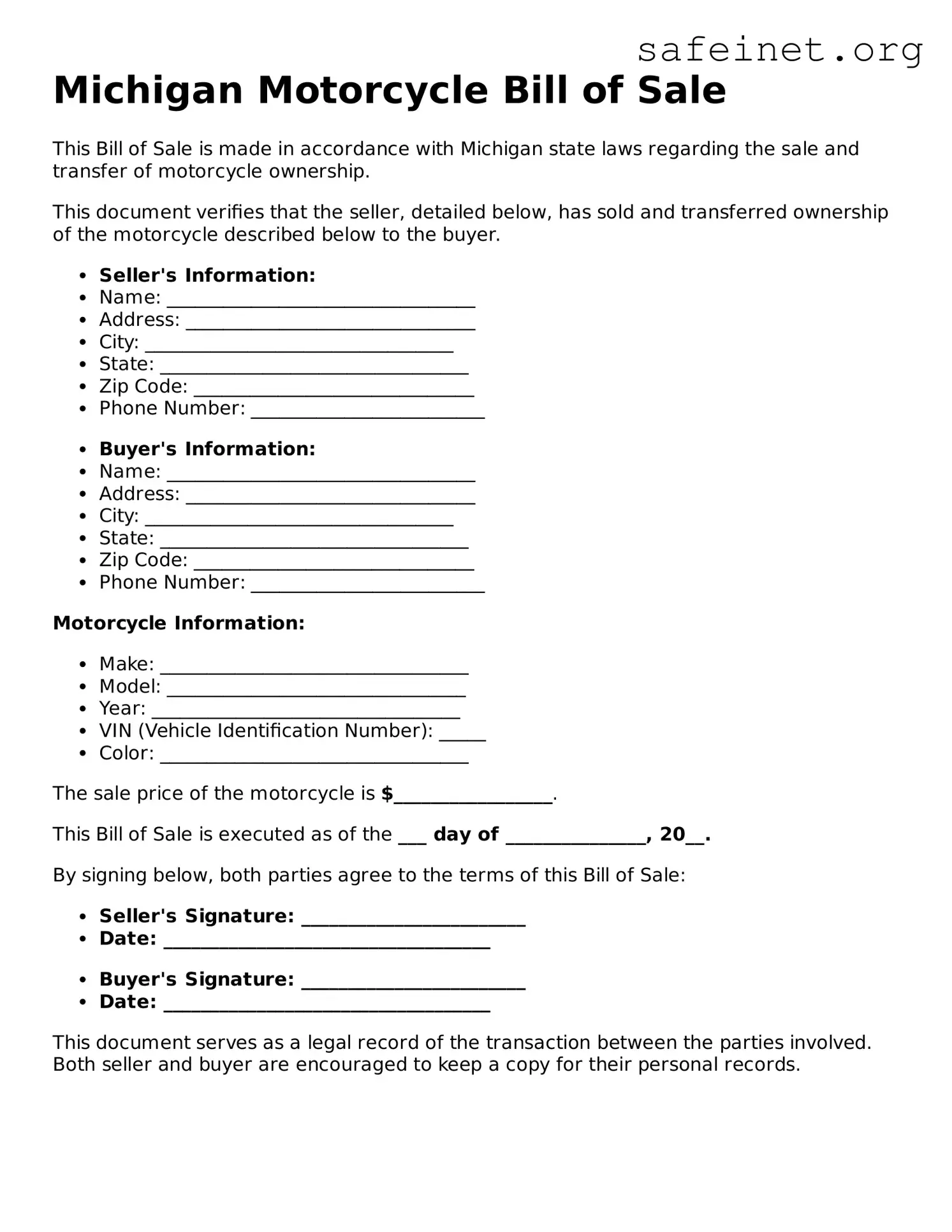What is a Michigan Motorcycle Bill of Sale?
A Michigan Motorcycle Bill of Sale is a legal document that records the transfer of ownership of a motorcycle from one party to another. It serves as proof of the transaction between the seller and the buyer and contains important information about the motorcycle and the parties involved in the sale.
Why do I need a Bill of Sale for my motorcycle in Michigan?
In Michigan, a Bill of Sale is not required by law for the sale of a motorcycle; however, it is highly recommended. This document provides a record of the sale, protects both the buyer and seller, and can be useful in the event of disputes or verification of ownership in the future.
What information should be included in a Bill of Sale?
The Bill of Sale should include the names and addresses of both the buyer and seller, the motorcycle's make, model, year, Vehicle Identification Number (VIN), odometer reading at the time of sale, sale price, and the date of the transaction. Both parties should sign and date the document to validate the agreement.
Is a Bill of Sale the same as the title transfer?
No, a Bill of Sale and title transfer are not the same thing. While a Bill of Sale documents the sale, the title transfer is a separate legal process that officially changes the ownership of the motorcycle with the state. It is crucial to complete both to ensure proper ownership transfer.
Do I need to have the Bill of Sale notarized?
Notarization is not mandatory for a Bill of Sale in Michigan. However, having the document notarized can provide an additional layer of verification and credibility. This is particularly beneficial in case of any disputes regarding the sale.
Can a Bill of Sale be used for tax purposes?
Yes, a Bill of Sale can be used for tax purposes. When registering a motorcycle, the buyer may need to provide the Bill of Sale to verify the purchase price for sales tax calculations. Retaining a copy of this document can be helpful for maintaining accurate records.
What if I lose my Bill of Sale?
If you lose your Bill of Sale, try to obtain a copy from the other party involved in the transaction. If this is not possible and the document is needed for legal purposes, you may need to create a new Bill of Sale and have both parties sign it again, preferably in front of a witness or notary.
Where can I obtain a Michigan Motorcycle Bill of Sale form?
Many resources are available online where you can download a Michigan Motorcycle Bill of Sale template. Additionally, local legal stationery stores may carry forms. It is crucial to ensure that any form you use complies with Michigan state laws and accurately captures all necessary details of the sale.
